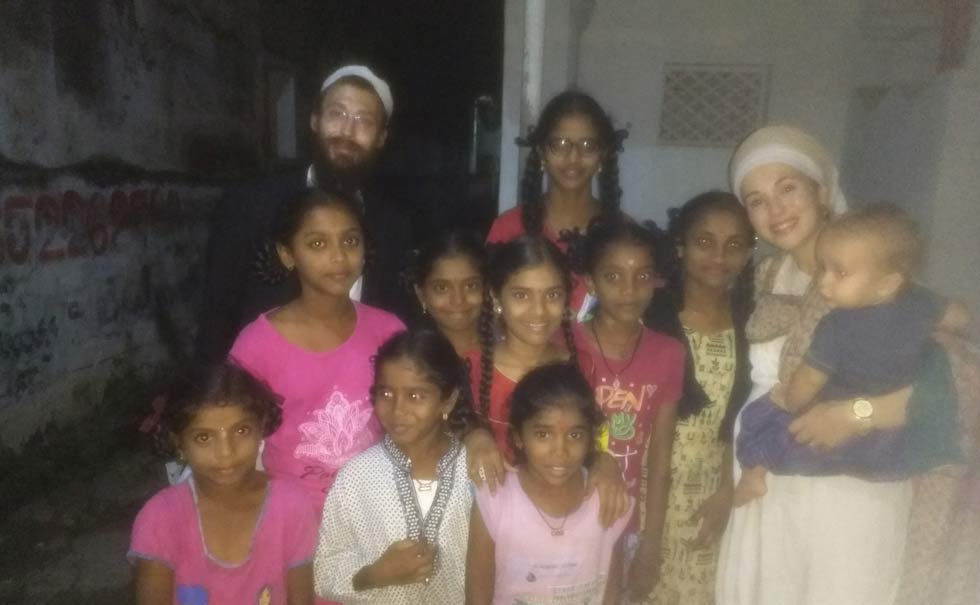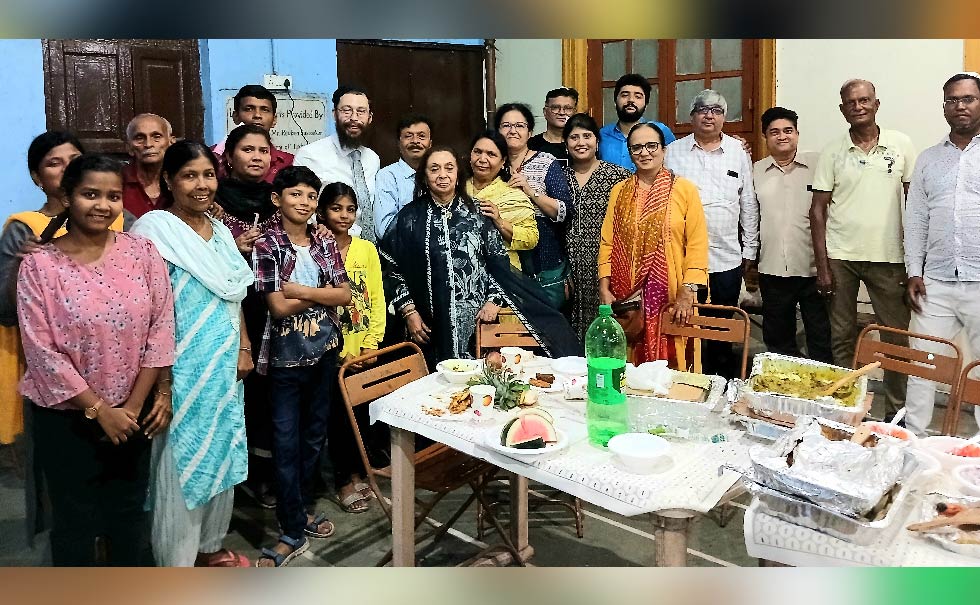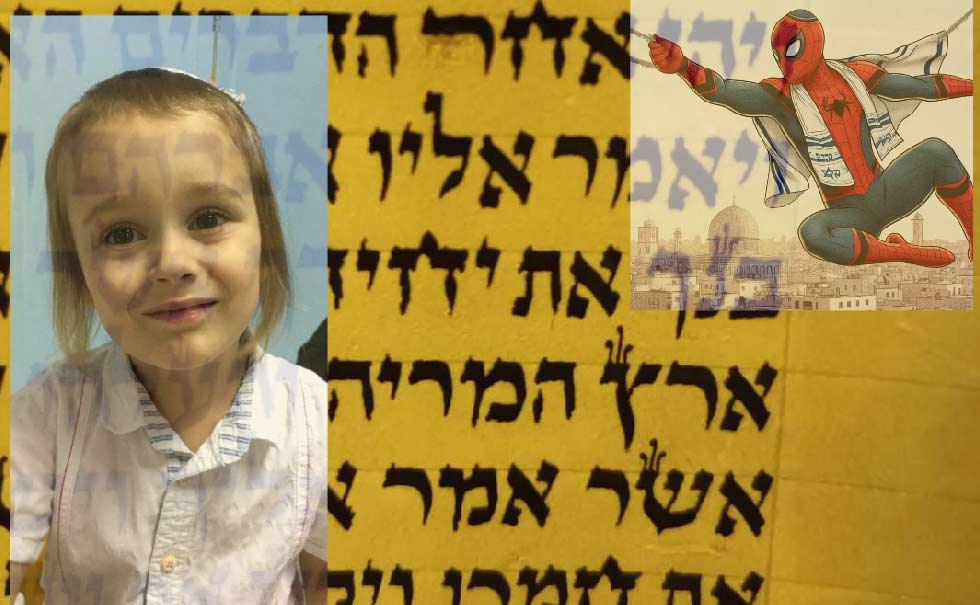Noahide Sukkot
From our first eventful meeting with Baruch Shalom at our Brit for our son Asher David, we remained in general good contact and heard much from about the development of his community, they had undertaken to make a care home for Widows and Orphans (https://www.littlearkangels.com/) and to provide meals and assistance to the less fortunate in his community, Baruch and his Father had visited the Paradesi Synagogue many times as guests for the festivals and Shabbatot and we were visited by them during Purim where we began to discuss the possibility of visiting the community in rural Payakaraopeta, Andhra Pradesh.
The only issue was that his particular area had little in the way of factories that could be visited as part of the Kosher auditing and my time in terms of Shabbatot and Chagim needed to be at the Paradesi Synagogue. The compromise we made was to visit during Chol Ha’Moed Sukkot and to visit two plants in Andhra Pradesh over a two day trip with the family including my father.
We decided to help their care home by purchasing new pots and pans, knives and equipment that would make the visit possible in terms of Kashrut and also have a lasting value and usefulness, we had various vegetables and rice delivered from the local market.
Our entrance into their village was surreal and powerful, villages lined up to see us and threw flowers at us, a sign bearing our names welcomed us, some bowed to touch our feet in respect and my wife was suddenly holding a baby passed to her from the crowd for a blessing.
As we walked through the small village, more faces delighted to see emerged and we travelled up the road to the small care home, inside we met many of the widows that the care home provides shelter to women who have no land, few rights or options.
Awaiting us was the new kitchen ware, we immediately set about cooking for the event that evening, on the freshly swept floor volunteer women sat peeling, cutting, chopping vegetables, many of them using a kind of foot stool knife common in rural India.
Before long the care home was a sea of people, coming to meet us and introduce us to various members of the community, ingredients and bottled water for cooking carried by boys, a small girl with a bunch of fresh herbs and spices, older women who came to ask us to pray for their blindness and weakness to depart from them.
Once we had the food prepared we went that evening to their synagogue and community center in the early evening, on the roof they had constructed a giant makeshift Succah, our arrival in the cab was met by trumpets and choir and we proceeded on foot with a crowd of Noahides.
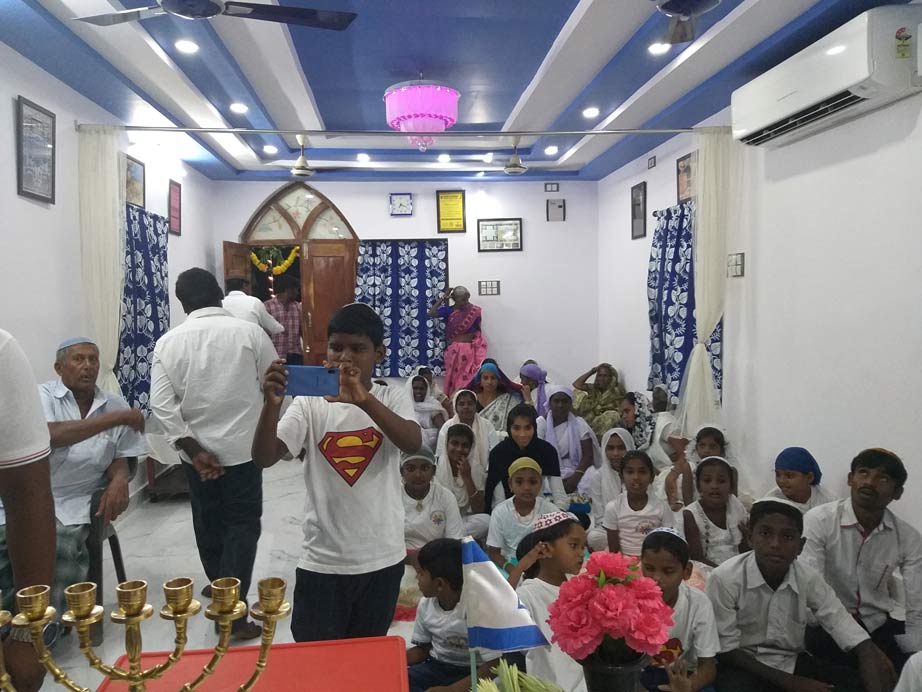
The Synagogue they had constructed was clearly the pride and joy of the community with its carved doors and small electric Ner Tamid, a lace curtain for a Mecheitza we were led into the synagogue with some children singing Hebrew songs into a microphone with added echo and a tall man drummed on bongos and other Indian traditional drums.
They sang songs and welcomed us with great joy and devotion, singing Hebrew songs and popular chants. We took the opportunity to teach Torah to them and to hear about the activities and programs running in the community.
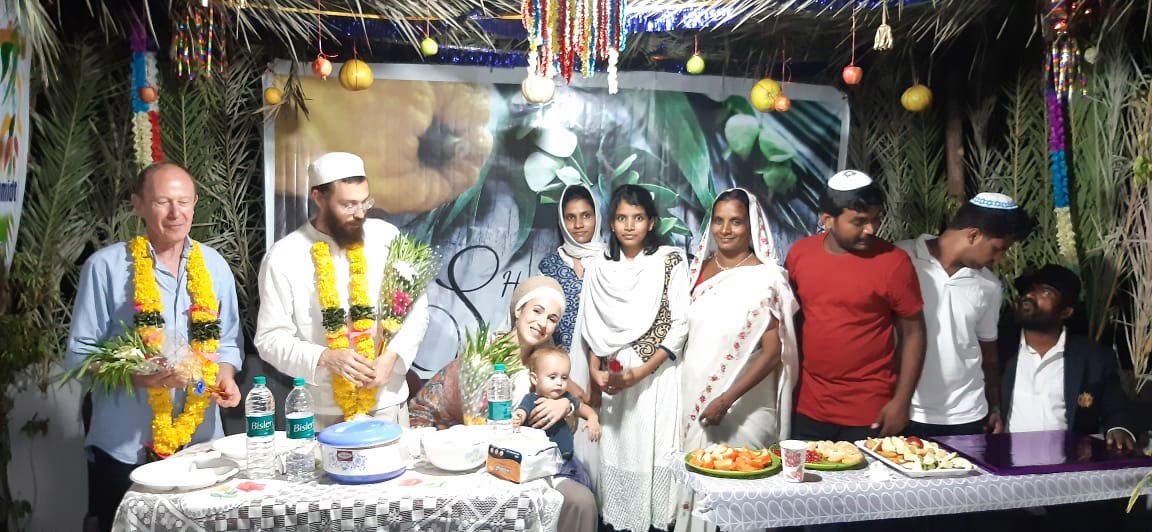
After we spoke and taught about the festival of Succot we ventured up onto the roof and their giant communal succah and served the food that we had prepared earlier to the community, around us was a powerful joyous atmosphere and we were deeply moved by the experience.

